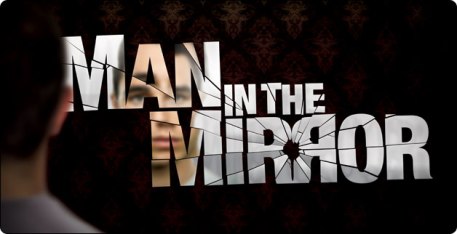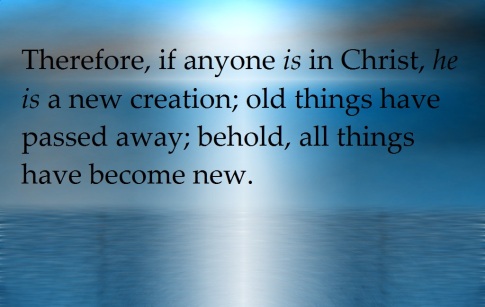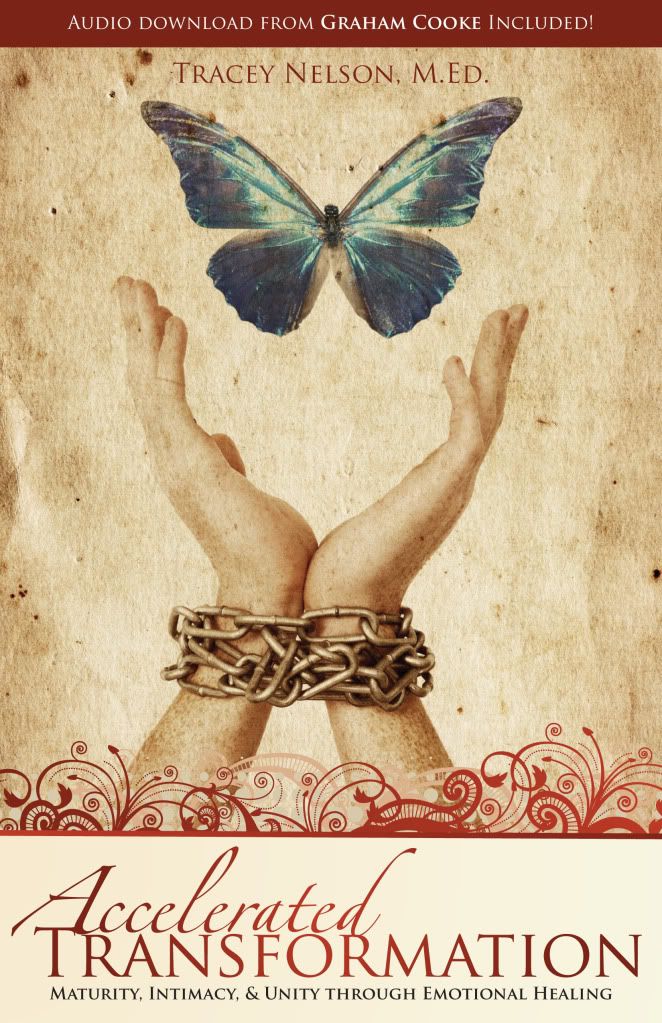The Link Between Defensiveness and Shame Part I
Do you know anyone who is defensive, critical, or has a problem with anger from time to time? That is proof positive that they are operating their lives from an identity of shame. I should know. I used to be one. As a matter of fact, most of us suffer from it to one degree or the other. So this is a topic worthy of everyone’s attention.
The Need to Defend – Rooted in Death and Pain
 So why do we defend ourselves so vehemently that we are willing to risk our closest relationships in order to cast all blame away from ourselves? Psychologists consider the experience of shame to be equivalent to the death of the soul.[1] It leaves us feeling the need to defend our very lives and, if possible, to also hide.
So why do we defend ourselves so vehemently that we are willing to risk our closest relationships in order to cast all blame away from ourselves? Psychologists consider the experience of shame to be equivalent to the death of the soul.[1] It leaves us feeling the need to defend our very lives and, if possible, to also hide.
Neuroscientists have discovered that shame is registered in the brain as strong physical pain. It may even be the strongest pain experienced by the human body.[2] So, naturally, we will do anything we can to defend ourselves against or run from experiencing that sort of pain. By doing so, we subconsciously believe that we will be saving our lives. But we can’t save ourselves. We need help.
The interesting thing is, we don’t necessarily know that we are in pain. That is because we have equipped ourselves with a variety of defensive psychological strategies to help us avoid experiencing the pain. But our pain is still there; buried. By that I mean that our pain is attached to memories that make us react defensively or in anger when they are touched. These defensive strategies are often referred to as coping behaviors. While being angry and defensive can be damaging to our relationships and jobs; there are some avoidance behaviors that are as destructive to our health as they are to our productivity and success. Therefore, with so much at stake, it behooves each of us to learn how we can get set free.
Of course, we can never be rid of our memories. But with the right information and strategies, we can learn how to get rid of shame’s destructive effects. Lets start by learning a bit about what shame really is and how it affects us.
In this series of articles, I will share more information and tools to help you take positive steps towards healing. So please make sure you subscribe to get updates as articles come out. (I have just divided this article into two shorter articles so the next one will be out shortly after this one.)
The Power of Shame to Distort Identities
 When I am speaking of shame, I am not referring to the sort of shame that simply makes us feel guilty and ashamed for doing something wrong. This type of shame is referred to as healthy shame. We definitely need healthy shame to keep us humble, respectful, and law abiding. Nevertheless, we need to get set free of any healthy shame we are dealing with, too. But this is a bit easier to rid ourselves of.
When I am speaking of shame, I am not referring to the sort of shame that simply makes us feel guilty and ashamed for doing something wrong. This type of shame is referred to as healthy shame. We definitely need healthy shame to keep us humble, respectful, and law abiding. Nevertheless, we need to get set free of any healthy shame we are dealing with, too. But this is a bit easier to rid ourselves of.
What I am referring to is the sort of shame that becomes a part of our identity. It isn’t the feeling of doing something wrong but of being wrong. This is called toxic shame.
The difference between these two forms of shame may appear subtle at first but if you want to conquer it, it is vitally important that you grasp the difference. The first form of shame has to do with doing, the second has to do with being. In other words, with healthy shame I will say, “I have a flaw.” With toxic shame, I will say to myself, “I AM flawed.” It is the feeling that “I am a mistake” versus “I have made a mistake.” With toxic shame we have taken on shame as an identity. In other words, it is not something we can quickly get over simply by apologizing. It takes a concerted effort and a commitment to be rid of this form of shame. All in all, shame as an identity is the feeling of somehow being “less than” or even less deserving than others. This is a distortion of one’s true identity.

It is often useful to understand shame through another perspective. Let’s look at its connection to sin. There are sins we commit against ourselves and sins against others. Sin, in general, separates us from others. This happens because we have either made an unrighteous choice that offends or harms someone in the process or a sin against ourselves eventually causes some form of separation between us and others to occur (e.g., death from alcoholism). Therefore, healthy shame is connected to our own wrong doing. The remedy is simple. A change in our own behavior and seeking forgiveness will generally be all that is required.
Toxic shame, however, is much more complex and difficult to resolve. It is typically the result of someone’s sin against us; real or imagined. We experience toxic shame when we are rejected, humiliated, or when someone perpetrates a crime or offense against us. But it can also come to us as the result of a major disappointment or suffering a traumatic event; neither of which necessarily involve a sin. Toxic shame can also come from a false perception we have about ourselves; typically arising from our childhoods. This is because children are too young to discern the difference between what is true and what is false. But any situation we deem as shaming can do damage to us. Consequently, we may have formed a false sense of unrighteousness within our souls. In other words, we may have decided that there was something wrong with us. It is this false sense of being wrong, flawed, or “less than” that makes people become easily offended and defensive.
The Damaging Effects of Shame
The reach of shame in our lives is quite broad and the number of problems it contributes to is extensive; so much so that I can’t get into all of them in a single article. But I will touch on a few to help you get an idea why it is so important to commit yourself to getting set free.
Because shame is registered as actual pain, human beings can suffer from a wide range of negative physical and psychological effects. This is because we will go to great lengths to avoid experiencing our pain; pain which is kept “safely” buried beneath the surface. Consequently, our shame is usually the root that lies beneath many of our worst choices in life not to mention our conflicts with others. One example of this was, as already discussed, our defensiveness which also manifests as a means to avoid pain.
There are other behaviors we will engage in to help us avoid feeling pain as well. Some of our choices may, at first, actually seem quite productive but when we engage in them in order to avoid feeling the pain of shame, they generally have control over us (e.g., obsessive working, exercising or cleaning house) turning us into their slaves. A great many other choices that we make are much more destructive. For example, when we comfort ourselves with drugs, alcohol, food, or by spending too much time numbing our minds in front of the television or computer, we are self medicating with substances that can erode our health and steal away our most valuable time.

I have already explained how shame distorts the self. This can affect our overall self-esteem and self-concept. Not only will this have an impact our level of confidence, but it can create intimacy issues with others.
The reason shame holds such tremendous power over the human psyche is because during childhood our perception of ourselves was connected to others’ perceptions of us. Consequently, it is through our interactions with others that we are often reminded of our earlier memories of shame and self-hatred. It is also why human beings are so vulnerable to being manipulated, controlled, and even abused by those they love or care about.
When people have taken on an identity of shame they are much more likely to be narcissistic, prone to depression and anger, and a lot less capable of really connecting with others on a truly intimate and authentic level.

Our avoidance of shame makes it much more difficult for us to listen to the hearts of others; even affecting our ability to share our own. As you can see, it really behooves us to confront and heal our toxic memories and thoughts; if not for our own sake but for our loved ones as well.
Over the past 35 years, nearly all of the people I have coached, counseled, or conducted a conflict mediation for have attributed their worst problems in life to this identity of shame; whether they suffered through a divorce, a drinking problem, or an autoimmune disorder, shame was to blame. Worst case scenarios can leave people who suffer from shame facing addictions, joblessness, or mental illness. Sometimes, it can even turn them into the perpetrators of violence, domestic abuse, or murder.
 After I dedicated one of my Master’s Theses to this topic of shame, I felt that I had to publish a book with my findings because I realized how little the general public really knew about this pervasive problem. Ministers in the church have experience dealing with shame, but they usually focus on the sin aspect of healthy shame. They rarely understand the powerful psychological dynamics behind toxic shame. How do I know this? For 27 years, I was not able to get totally set free until I ran across this knowledge. Although I made sure to include entertaining examples of how toxic shame operates as well as my own personal journey to healing and freedom, I found that there was surprisingly a lot of scholarly and biblical evidence supporting how the experience of shame can distort our identities.
After I dedicated one of my Master’s Theses to this topic of shame, I felt that I had to publish a book with my findings because I realized how little the general public really knew about this pervasive problem. Ministers in the church have experience dealing with shame, but they usually focus on the sin aspect of healthy shame. They rarely understand the powerful psychological dynamics behind toxic shame. How do I know this? For 27 years, I was not able to get totally set free until I ran across this knowledge. Although I made sure to include entertaining examples of how toxic shame operates as well as my own personal journey to healing and freedom, I found that there was surprisingly a lot of scholarly and biblical evidence supporting how the experience of shame can distort our identities.
I didn’t write this book to simply call attention to the problem but to see people quickly healed. You see, toxic shame isn’t quite as simple to get set free from as healthy shame. It still requires the supernatural help of the cross, but its grip is so tenacious that we usually need more than just a single trip to the altar to get set free. That is why it typically takes a lifetime to get there. However, God has given me techniques in recent years to accelerate our results, hence this is why the title of my book is Accelerated Transformation: Maturity, Intimacy, and Unity through Emotional Healing.
Relate to Anything in this Article?
If I have touched upon anything you recognize about yourself in this article, then you likely live from an identity of shame and may want to read each article in this series to help you get a better understanding about what you are facing.* In these articles, I will provide you with tools you will need to deal with it in an effective manner. Won’t you examine your heart to see if this has affected your connection with your heart, with God, or others and commit yourself to getting well?
Resources for Further Study or Assistance
Look for other articles to come in the next week or so. These will go a long way to helping you learn how to set yourself back on the right path. I suggest that you subscribe to my blog to get updates when they get published online. To do this, place your email in the blank provided on the upper right side of my blog (at thespotlessbride.wordpress.com). I am not yet sure how to set up my RSS feed yet, so if that doesn’t work, that is why. Comment below if you are interested in doing this and I will make sure it works for you at that point.
Be aware that you may feel some pain surface in your heart after reading all of this. This is completely normal and expected. If it does, I don’t suggest letting it stay there. In my book there is a code to help you download a prayer audio recording that helps. I suggest using that immediately, then doing the worksheets in the back of the book to trace your pain to the root. Also, be sure to answer the questions at the back of each chapter.
Here is a contact form to get in touch with me. Just fill it out and be sure to watch your junk mail for my reply. You may have to wait a few days at most as I may be out of town teaching. But I will be in touch no matter what:
 None of this is in any way, shape, or form a sales pitch. I’d give you my book for free if I could. (I’d like to find a financial sponsor who’d let me be able to afford to do that so please contact me if you are interested). My aim is to see this might happen one day. But I suggest it because my book is truly a useful tool for providing pain and bad habit relieving exercises and vital knowledge that you will need to help you to heal and get set free from the shame most people are suffering from. I can’t tell you in a short article just how detrimental allowing this shame to live in your heart will be for you and your family, but take a look at the upcoming articles as well as others on my blog to find out. Keep in mind that I will have another book and transformation curriculum published in 2016-17 as well.
None of this is in any way, shape, or form a sales pitch. I’d give you my book for free if I could. (I’d like to find a financial sponsor who’d let me be able to afford to do that so please contact me if you are interested). My aim is to see this might happen one day. But I suggest it because my book is truly a useful tool for providing pain and bad habit relieving exercises and vital knowledge that you will need to help you to heal and get set free from the shame most people are suffering from. I can’t tell you in a short article just how detrimental allowing this shame to live in your heart will be for you and your family, but take a look at the upcoming articles as well as others on my blog to find out. Keep in mind that I will have another book and transformation curriculum published in 2016-17 as well.
Please like and share this article with others if you think it is of value and thank you! May God bless you on your journey.
References:
1) Bradshaw, J. (2005). Healing the Shame that Binds You. (2nd ed.). Deerfield Beach, FL: Health Communications Inc.
2) Aron, E. (2008). Coping Corner: Highly Sensitive People and Shame. [Blog]. From http://www.hsperson.com/pages/3Nov08.htm
3) Nelson, T. (2010). Accelerated Transformation: Maturity, Intimacy, and Unity though Emotional Healing. Santa Rosa, FL: Christian International.
4) Colossians 3:9, Romans 6:6, Ephesians 4:22, Galatians 2:20
5) Bradshaw, J. (2005). Healing the Shame that Binds You. (2nd ed.). Deerfield Beach, FL: Health Communications Inc.
6) Romans 12:2
——————————-
© Tracey Nelson, M.Ed.
Permissions: You are permitted and encouraged to reproduce and distribute this material in any format provided that you do not alter the wording in any way and do not charge a fee beyond the cost of reproduction. For web posting, a link to this document on our website is preferred. Any exceptions to the above must be approved by The Spotless Bride Ministries.
Please include the following statement on any distributed copy: By Tracey Nelson, M.Ed., author Accelerated Transformation , © Oct. 21, 2014 Website: The Spotless Bride Blog; (Some images, songs, & videos not owned by author).
*Disclaimer: Nothing in this article is meant to serve as medical advice. If you feel you are suffering from a mental illness, you need to seek the counsel of a licensed mental health professional.







Trackbacks